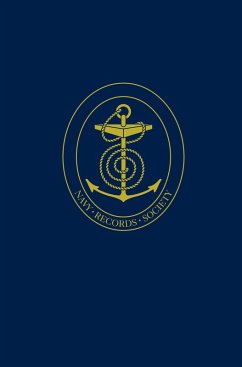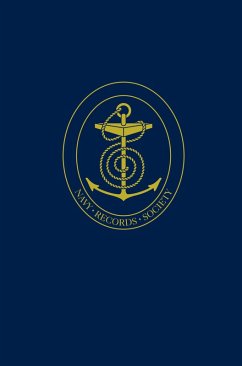'The Rodney Papers, Selections from the Correspondence of Admiral Lord Rodney, Volume II, 1763-1780'. Edited by David Syrett. This is the second of two volumes of a planned three-volume edition of Admiral Lord Rodney's correspondence edited by Professor David Syrett, Distinguished Professor of History at Queen's College, City University of New York, and published after his untimely death in 2004. It covers Rodney's life from the end of the Seven Years' War in 1763 until the completion of his 1780 campaign in the West Indies and highlights the extraordinary contrasts in the admiral's complex personality, on the one hand the consummate professional fighting tactician and strategist, on the other the dissolute, overbearing, avaricious, and uncongenial wastrel. The first part of this second volume covers the 16 years which followed Rodney's return from the West Indies in 1763 during which he managed lose the entire fortune he had accumulated during his earlier career. A three year appointment as commander in chief in Jamaica, far from improving his finances, made matters worse as the Navy Board withheld his pay against excessive expenditure. On his return he fled to France to escape his creditors and stayed there until 1778, despite repeated efforts to gain a command following the outbreak of the American Revolutionary War. The second part deals with just a single year from March 1779 to March 1780 and reveals what might be called the other Admiral Rodney. With the Royal Navy having performed disappointingly since the outbreak of the war and with France having joined the conflict, Lord Sandwich, First Lord of the Admiralty, turned in desperation to Rodney as an admiral who could win battles. Appointed commander-in-chief of the squadron in the Leeward Islands, he was given the task of relieving Gibraltar and resupplying the British base at Minorca on the way to his new command. To that end, he left England on Christmas Day 1799 with a squadron of 21 ships of the line and a convoy of 55 transports and store ships. Despite having to protect his own convoy, in the nine days between 8 and 17 January 1790 he took an entire Spanish convoy of 15 merchant vessels together with a ship of the line and six smaller escorts and then, in the Moonlight Battle, defeated a Spanish fleet of 11 ships of the line, destroying one and capturing five. The final part covers just five months from Rodney's arrival in the West Indies in March 1790 to his departure for New York the following August. In that time he fought a series of actions against superior French forces which, though inconclusive, nevertheless were of immense strategic importance in frustrating French and Spanish threats to British possessions. Perhaps most significantly, Rodney believed that, because the failure of some of his captains to obey his orders, the engagement off Martinique on 17 April was one of the great lost opportunities of the American War. The planned third volume of 'The Rodney Papers' remains to be prepared and published.
Dieser Download kann aus rechtlichen Gründen nur mit Rechnungsadresse in A, D ausgeliefert werden.









